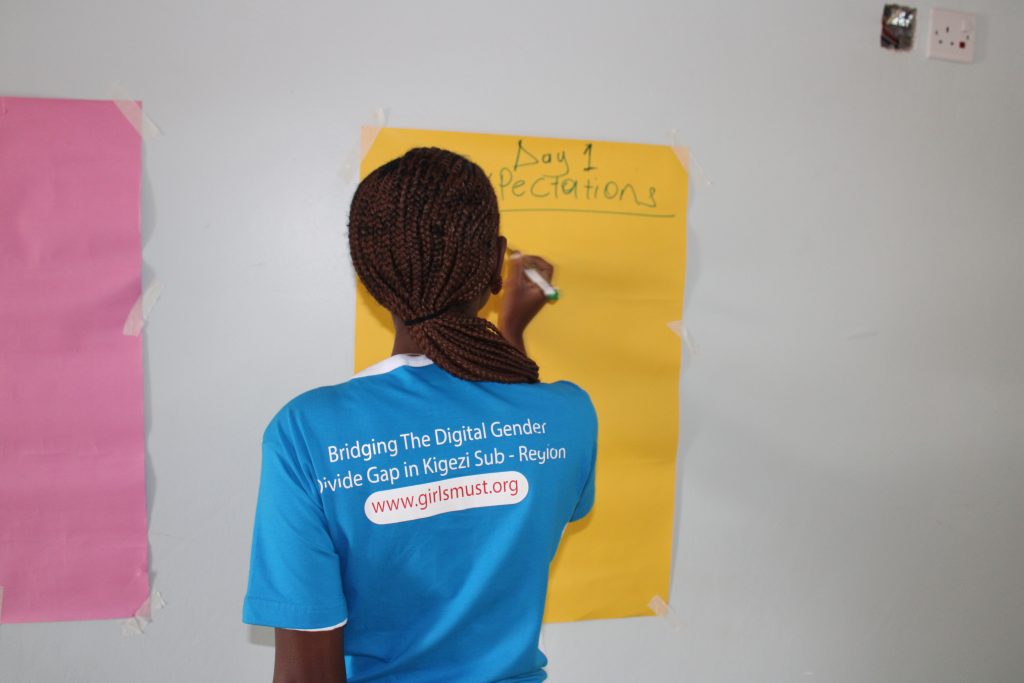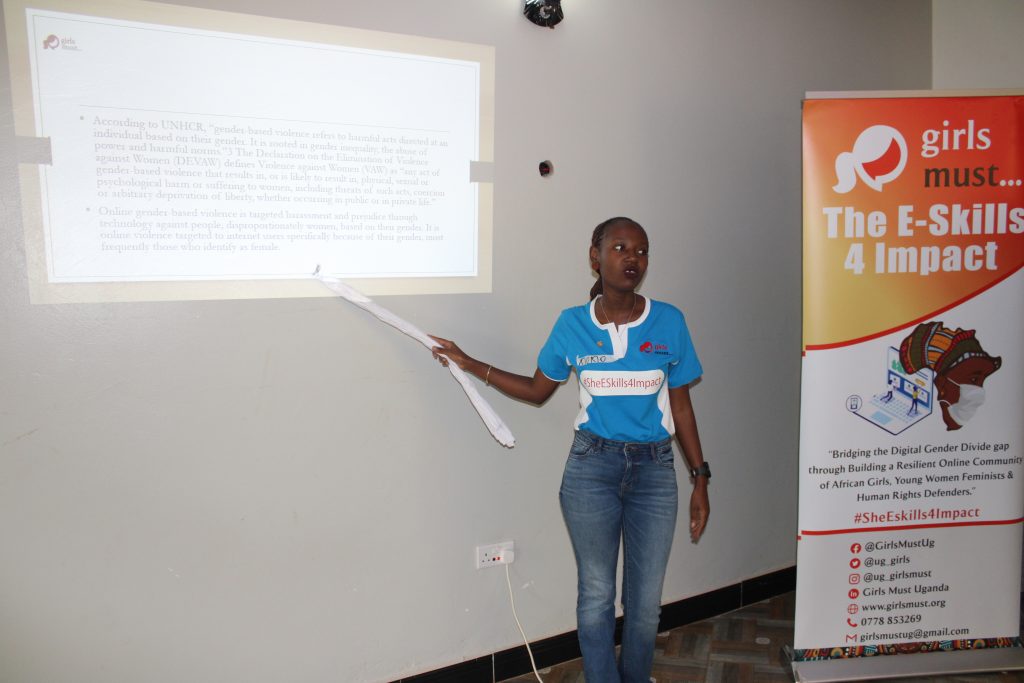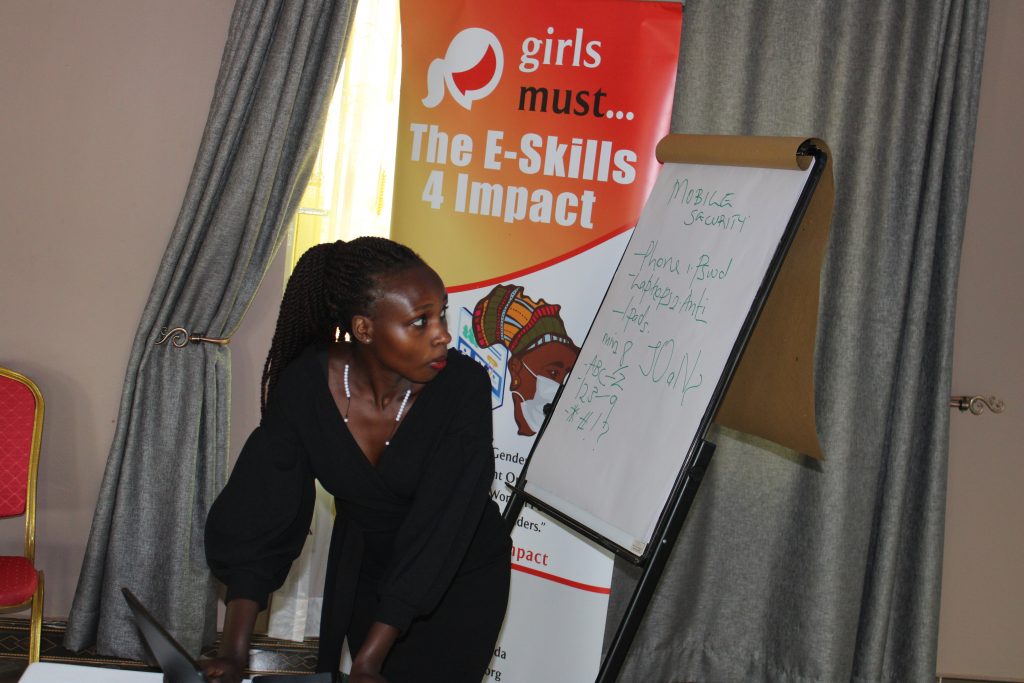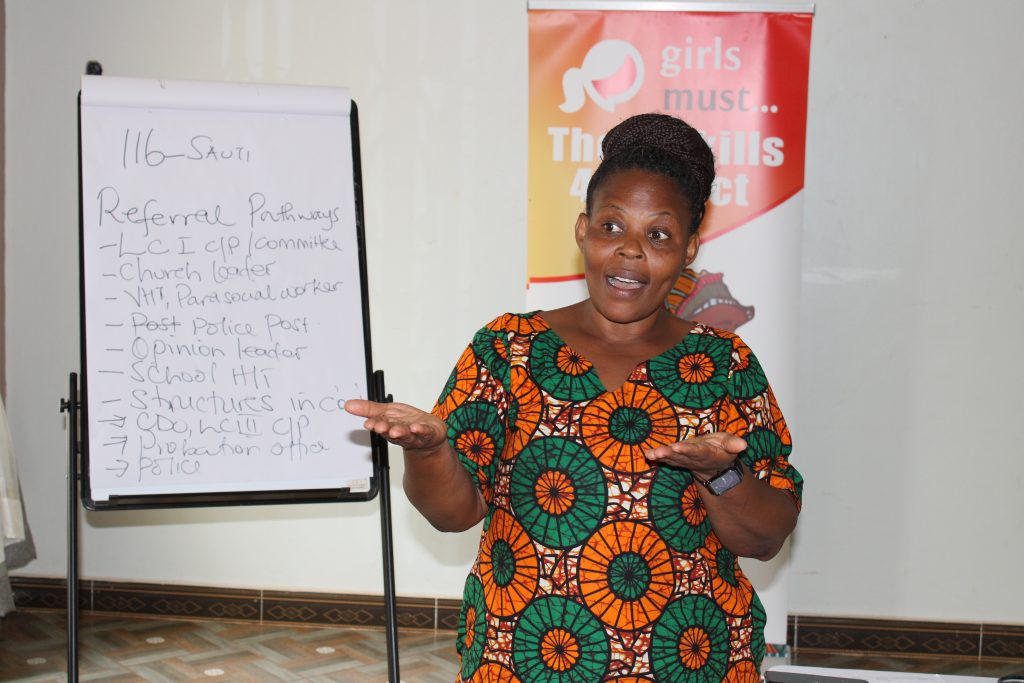27th January, 2023
As digitization is gaining momentum in Uganda and opening up unprecedented opportunities for women to express themselves and take part in social and developmental debates,online violence against women and girls has also dramatically increased.
Now, a Ugandan feminist has urged the government to enact a law that will criminalize online gender based violence targeting women and girls.
The law will punish online in-laws or netizens and create a safe public space for women and young girls in communities who are at a risk of child marriage and teenage pregnancy,among other problems.
Maurine Tukahirwa,the Chief Executive Officer at Girls Must Uganda,a feminist movement while training feminists in Kabale town on Wednesday during Round of #SheEskils4Impact, digital safety and security Program revealed that innocent young women and girls have gone through untold psychological torture and suffering online,which she says should end.

“Online gender based violence includes unwanted sexual remarks,non consensual posting of sexual media,threats,doxing, cyber stalking and harassment,gender-based discriminatory memes etc.Our country should develop legal frameworks that are gender responsive and inclusive in order to protect women and girls online,” Tukahirwa said.
Tukahirwa further noted that during the COVID-19 pandemic,most teenage girls in Kigezi sub region were impregnated, revealing that all this started by these young girls being attacked online.
“The majority of women and girls who are active on social media have ever experienced some form of online gender-based violence. This has resulted in teenage pregnancy. Teenage pregnancy and early marriage limit the ability of these girls to go to school and find gainful employment.”
According to Tukahirwa,it’s very difficult for victims of online gender based violence to find support in Uganda because laws do not refer to online gender based violence,despite several contributions and efforts made.
Laws on on-line gender based violence
There are powerful international Human Rights frameworks providing legal protection against online gender based violence, including The Protocol to the African Charter on Human Rights and People’s Rights on the Rights of Women in Africa 2003(Maputo Protocol), The Council of Europe Convention on Preventing and Combating Violence Against Women and Domestic Violence (Istanbul Convention) and many others.
Social Media companies such as Twitter and Facebook have also formulated policies and guidelines to address online gender based violence. Facebook launched a victim support hub called Not Without My Consent to assist victims of online gender based violence.
Twitter has a Hateful Conduct Policy which recognizes free expression as a human right,and this handles target groups of people online,who also include women.
In Uganda, government has drafted a number of laws and further put in place policies to address discrimination against women, which includes The Domestic Violence Act of 2010,The Prevention of Female Genital Mutilation Act,The National Gender Policy and others.
Article 33(1) of the Ugandan Constitution accords full and equal dignity of women and men which must extend to the online sphere.
However, women and girls in Uganda remain at a higher risk and continue to face online violence.




